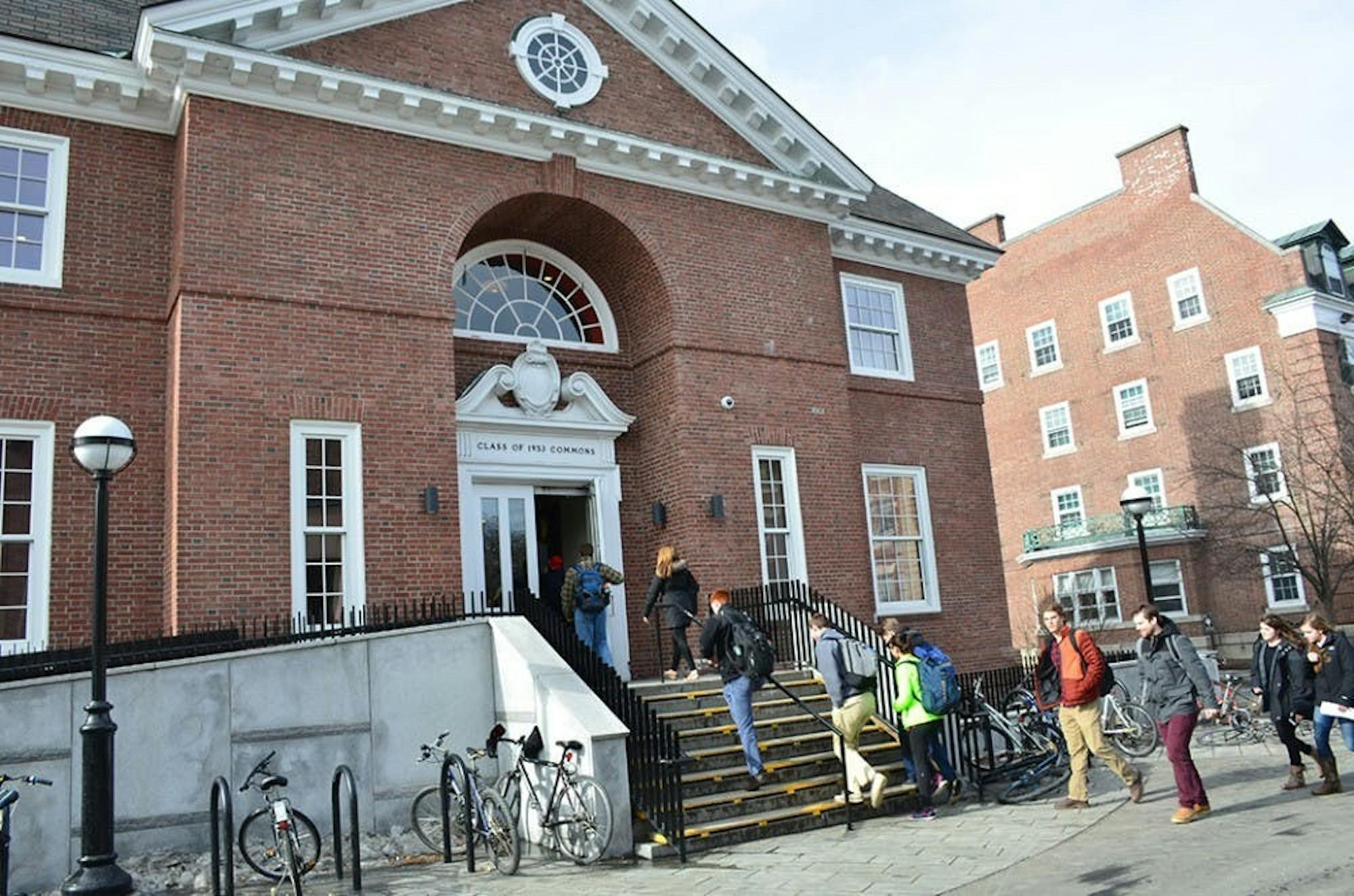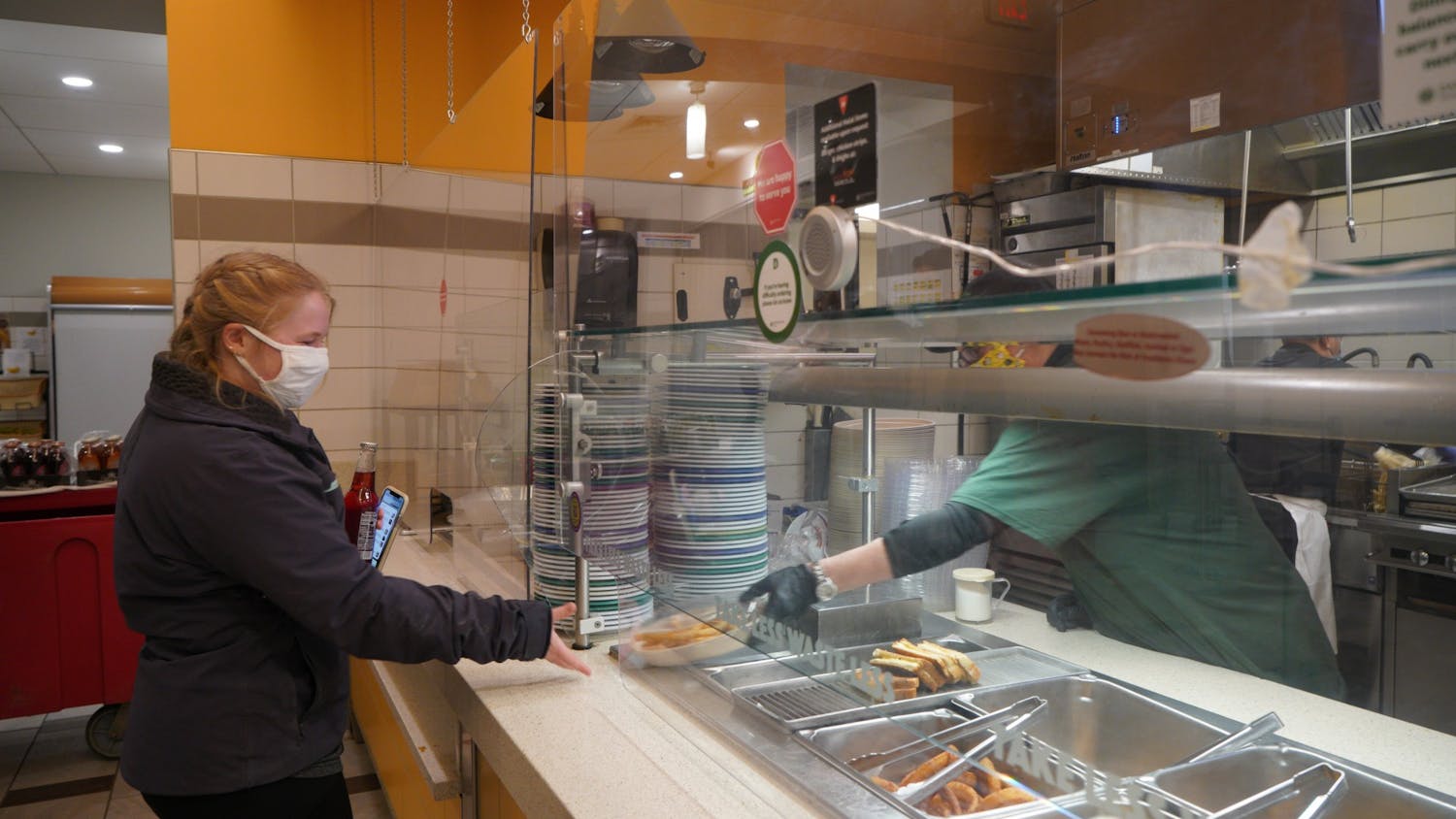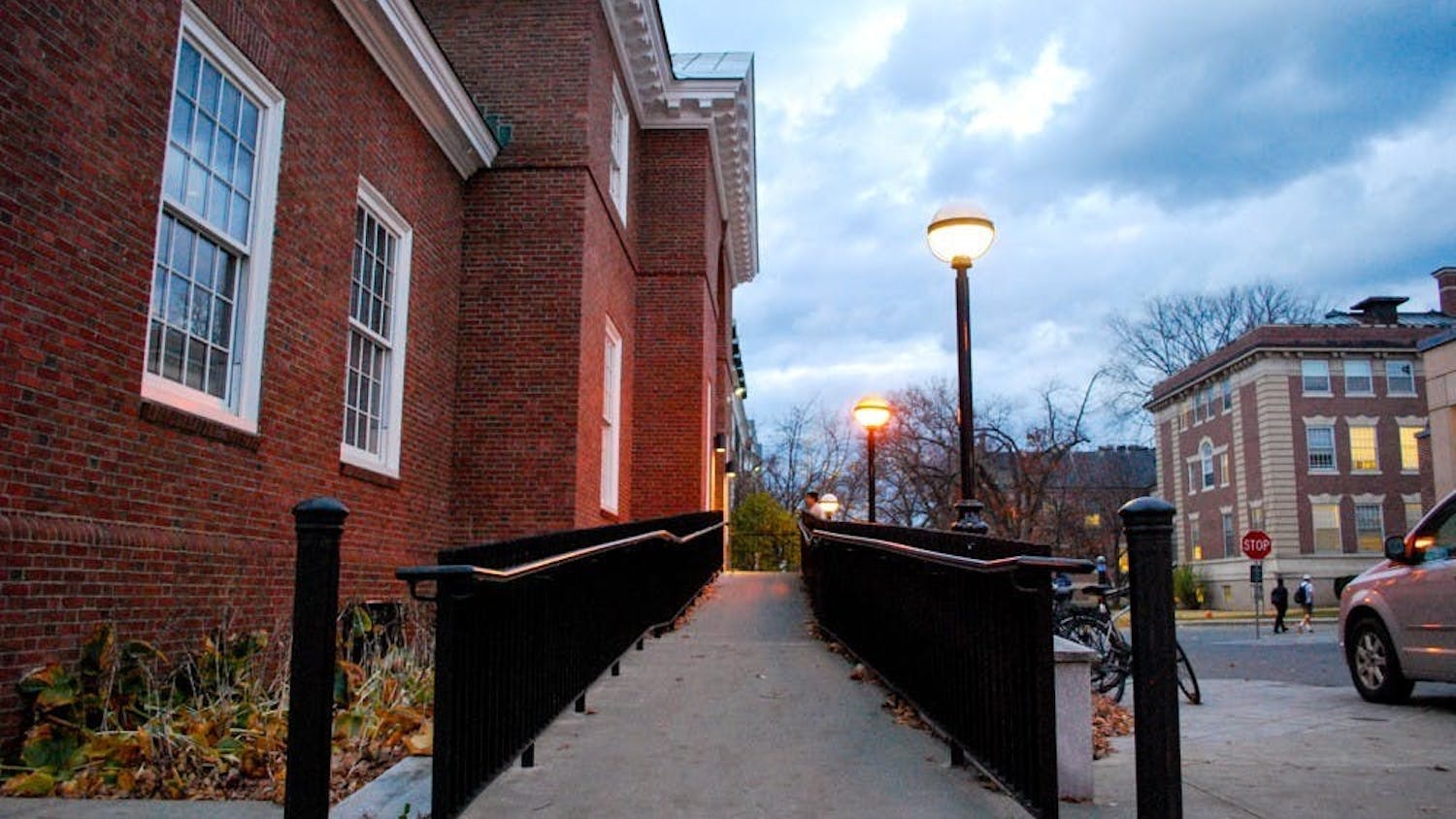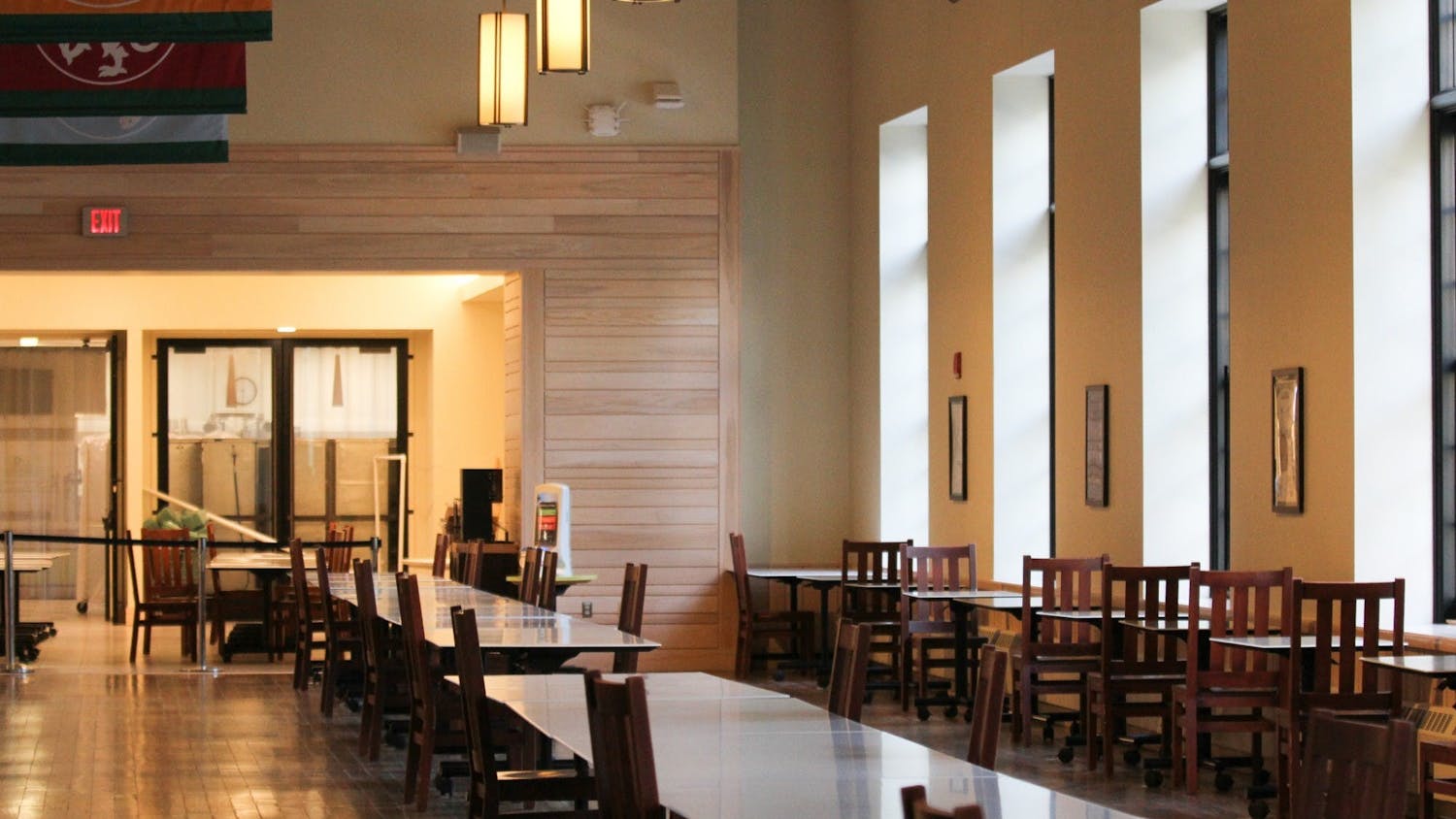On Feb. 10, Student Assembly published a report detailing the findings of a fall 2020 survey assessing the extent of food insecurity on campus. SA last published a similar report in fall 2018.
The most recent survey found that 32.7% of a total of 260 respondents reported having insufficient resources for at least one meal each week. Of the 148 respondents who reported being on financial aid, 41.9% noted that they have insufficient resources for at least one meal per week, and 4.7% said they lacked sufficient resources for over six meals per week.
“If you are not experiencing [food insecurity], it is easy to not see it,” said SA senator David Millman ’23, who helped produce the survey and the resulting report.
SA first launched its report on food insecurity during the 2018-2019 academic year under the leadership of then-SA president Monik Walters ’19 and then-SA vice president Nicole Knape ’19. Focusing specifically on the issue of DBA rollover and food insecurity over interims, the report found that 71% of surveyed students considered food insecurity an issue on campus.
This year’s report detailed some of SA’s latest initiatives, including a $2,500 donation to the Dick’s House food shelf and a “DBA-based donation drive” that allows students to spend excess DBA at the end of the term on items for the shelf. SA vice president Jonathan Briffault ’21 said the donation was the largest charitable contribution in SA history.
SA president Cait McGovern ’21 said that the DBA donation drive was first introduced in fall and is set to run again at the end of winter term. According to McGovern, students could purchase shelf-stable goods with excess DBA at Novack Cafe and Collis Cafe to donate to the campus food pantry. She said SA collected “two car-fulls” of food from donation boxes set up at both cafes.
Briffault added that SA is now looking to make another donation to the food shelf. Additionally, they plan to continue their food voucher programs, like the $35 Hanover Co-op food store gift cards given to students in need in previous terms.
In addition to SA’s efforts, others at the College are working to address food insecurity. The food shelf at Dick’s House is open 24 hours, seven days a week for students in need, thanks to the efforts of clinical service coordinator Dominique Walton and others. Walton said the food shelf has been operating since 2018, and she was inspired to start the project after hearing from a graduate student grappling with food insecurity.
“The student I heard about was starving and unable to study,” Walton said. “Nobody, especially on campus, should be hungry.”
Walton said that she started reaching out to fellow Dick’s House employees for assistance, and for two years the food shelf was run largely on staff donations.
Walton also noted her personal stake in the food shelf.
“I am a ‘mama bear,’” she said. “When I was young, my mom struggled between choosing to feed me or herself, and she had to choose her child. I feel like [students] have enough on [their] plate trying to get through Dartmouth, [they] shouldn’t have to worry about having enough to eat.”
Additionally, Molly McBride ’15, a sustainability fellow who works at the Dartmouth Organic Farm, led the Community Harvest Share program in the summer and fall to provide fresh produce to about 20 students facing food insecurity in the Upper Valley. She said recipients cited a variety of reasons for their need, from cuts to teaching assistant stipends due to virtual classes to the inability to access Dartmouth Dining meals due to work hours.
According to McBride, 37 people — 24 undergraduates and 13 graduate students — filled out the interest form for the program during the summer, and she was able to offer spots to 20 students. In the fall, 19 students participated. McBride assembled bags of fresh produce from the farm and assigned recipients to pick up the vegetables in a discrete location on campus.
In the SA report, over 100 people responded “yes” to a question asking about their interest in accessing a harvest share program for fall 2020. In response to this interest, McBride said that looking ahead, the Organic Farm would like to continue the program and increase capacity.
Dining plans also play a role in Dartmouth students’ access to food. Dartmouth Dining director Jon Plodzik said that a major goal of Dartmouth Dining is to increase interest in the unlimited meal plan, which he said is fully supported by financial aid and should “eliminate” some student concerns. Students living on campus are required to enroll in the Ivy Flex dining plan, which features enough swipes to use once every meal period.
“Food insecurity is something we talk about a lot,” he said. “A good example is during the spring break, we will not be closing, and over the winter break, the College and dining worked together to ensure that every student, regardless of financial need, was fed.”
Briffault noted that there had been some “pushback” on the notion that placing all students on a universal dining plan would aid pandemic-related food insecurity. He said that “students are still having problems” relating to food insecurity despite the mandated plan.
Briffault said SA has discussed the potential for DBA or swipe-sharing programs that would allow students to share their unused DBA or swipes with each other. Other discussions include extending options to use DBA off campus and increasing access to “kitchen kits” so students can make their own food without having to buy expensive kitchen equipment.
Regarding a potential meal-sharing program, Plodzik said there are “financial aid implications” for students sharing meal plans.
“If I am on full financial aid, it might not be appropriate for me to give you my swipes because I don’t pay for them directly,” he said. “One of the concerns about folks sharing dining dollars and meal swipes is that it runs counter to the federal program, which is focused on providing aid to the individual, not the group.”
Briffault said that addressing food insecurity is a “process,” and solutions do not emerge from just a few meetings. However, he said that he and McGovern have met with Plodzik three or four times, which he described as “productive dialogues.”
McGovern, who has worked on food insecurity issues as part of SA since 2018, said that she thinks the College still needs to work toward “enacting systemic change regarding food insecurity and support.”
“At the end of the day, there are enough resources at Dartmouth where there shouldn’t be a need for student organizations [like SA] to fill the gap in student meal plans,” she said.
SA senator Gerol Fang ’23 said SA’s survey does not “make any claim” to be representative of the student population, but she found it “eye-opening” to see the responses and read the anecdotes that people had sent in.
“Even if one person did not have sufficient resources, that should be something we are fighting for,” she said.




